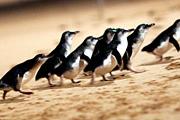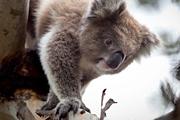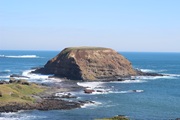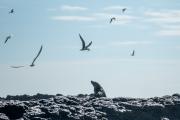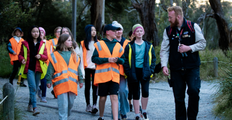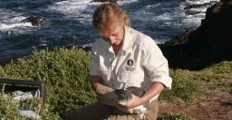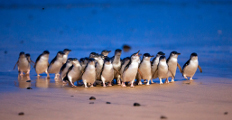Nature Parks ready to manage fire risks this season with new plan
A new blueprint will help Phillip Island Nature Parks manage the risk of bushfires this season, amid concerns that hotter, drier conditions will pose a more significant fire hazard.
The Bushfire Management Plan 2023-2027 sets out a range of fire preparedness initiatives being undertaken by Nature Parks to safeguard iconic wildlife, conservation areas and local communities on Phillip Island as we edge closer to the summer season.
Among the initiatives detailed in the new plan are the use of fire to maintain or improve biodiversity, reducing the risk of fire ignition within Nature Parks sites through education and restricted access areas, hazard management strategies, and having adequate resources to patrol for and respond to fire events promptly. The plan builds on Nature Parks’ Future Proofing Little Penguins initiative, which is helping to protect the widely loved animals by modifying penguin habitat to reduce flammability and land temperatures in high-risk areas, strengthening firebreaks and replacing vegetation with ‘penguin friendly’ plants to reduce the speed and intensity of a bushfire.
As part of the strategy, Nature Parks conducts pre-season inspections to check its asset protection zones and fuel management is carried out in accordance with appropriate standards, and ensures sprinkler systems at the Penguin Parade and Koala Conservation Reserve are fully functional.
Nature Parks staff also participate in property advice visits with the Country Fire Authority to support adjacent landholders with their fire preparations, and is investigating the feasibility of extending sprinkler systems around at the Penguin Parade Visitor Centre as additional emergency shelter.
Phillip Island Nature Parks Ranger-in-Charge Ben Thomas said climate change and the threat of more frequent, destructive bushfires had ensured a comprehensive fire preparedness plan to plan for future fire seasons.
“While bushfires are relatively uncommon on Phillip Island and most fires are quickly detected, with 65% contained to 1ha or less, we cannot be complacent. We must be prepared,” Mr Thomas said. “The reality is climate change is making heat stress events and bushfires worse, not only in Australia but globally. “These fire events are becoming more frequent, more intense and more dangerous – and they have the potential to decimate communities, conservation areas and vulnerable populations of the treasured wildlife we are fortunate to have on Phillip Island.
“In particular, fire can have devastating short and long-term effects on colonial nesting species, including penguins and short-tailed shearwaters, as well as koalas who have limited ability to escape fire – not to mention the knock-on effects on business continuity and the local economy.”
The Bushfire Management Plan 2023-2027 can be viewed here.





